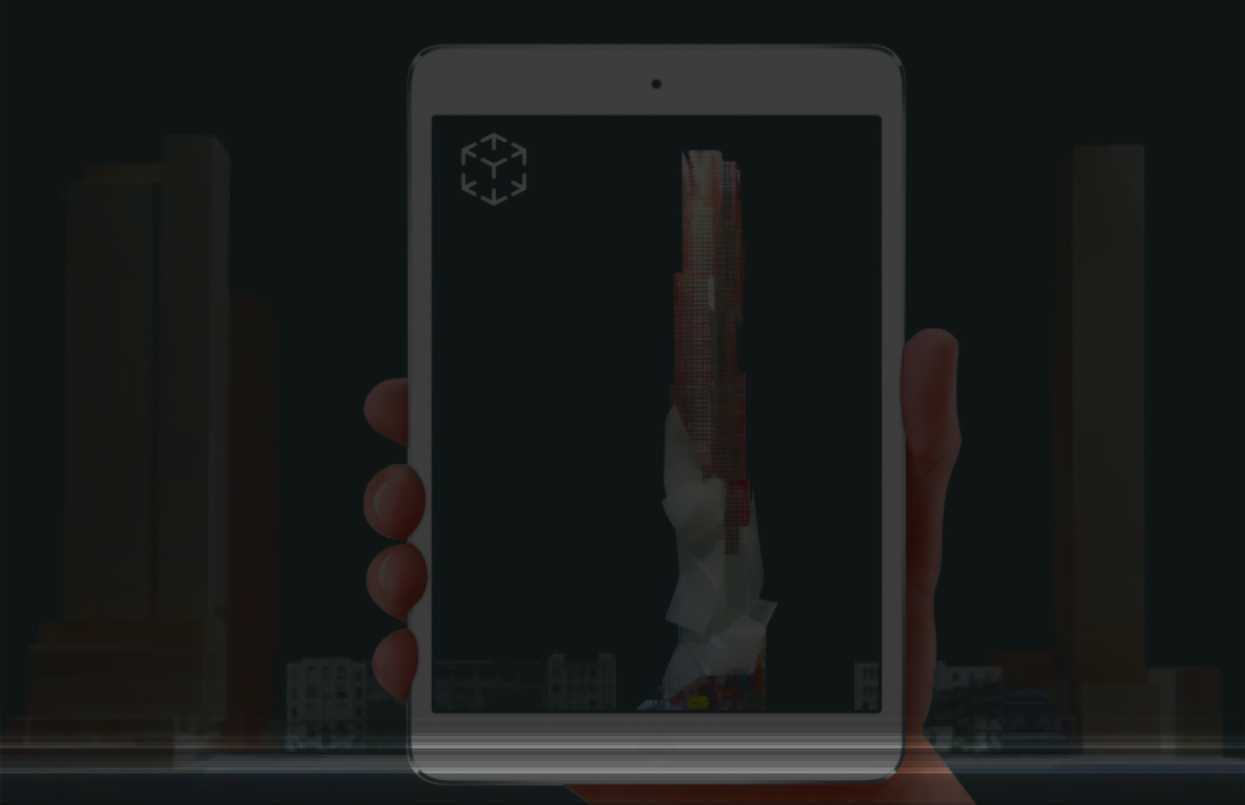BCNM Faculty Receive Berkeley Changemaker Grants

[Image credit: Original image from: King st. Development in Toronto by Frank Gehry, edited by Elnaz Tafrihi Bailey.]
A huge congratulation to Eric Paulos, Bjoern Hartmann, and Elnaz Trafrihi Bailey on receiving Berkeley Changemaker Technology Innovation Grant!
Launched by the office of UC Berkeley Chief Technology Officer (CTO) Bill Allison in the office of Chief Information Officer Larry Conrad, the winning projects will share $400,000 in general funds that were earmarked by Conrad in the 2019-2020 school year for information technology (IT) innovation.
Read about their projects below!
InsightXR: Re-imagining the Future of Design Learning in Virtual, Augmented and Mixed Reality. Funding for this project will allow the development of a virtual, augmented and mixed reality (VR/AR/MR) tool at the College of Environmental Design. InsightXR will allow innovative remote design collaboration techniques by giving faculty and students working off-campus the ability to interact with each other’s 3D models and provide multimodal feedback in synchronous or asynchronous mode. Designers will be able to collaborate with the recipients of their designs, as the app will generate highlighted areas displaying the most stakeholder interactions. The first InsightXR platform to be developed will be in AR, for testing during a fall 2020 architecture class that will explore how different architectural design choices promote natural light. AR is particularly suited for architecture design, said awardee Luisa Caldas, professor of architecture, since it enhances real world experiences by overlaying physical reality with digital information, enabling novel modes of design visualization and of interaction with different project partners.
Caldas said that InsightXR will enrich the online learning experience for students in design disciplines across campus, allowing them to better develop and evaluate the impact of their design proposals. Caldas, along with fellow awardee Elnaz Tafrihi Bailey, a Ph.D. student in architecture, aims by summer 2021 to bring the app to the public for use in both educational and professional applications of remote collaborative design across different domains and disciplines.
Lucid Learning. Awardee Eric Paulos, associate professor of electrical engineering and computer sciences and chief learning officer at the Jacobs Institute for Design Innovation, will create a suite of tools to help students in the fields of architecture, art practice and theater, dance and performance studies so they can incorporate AR and VR into their iterative processes of collaboration, design and feedback. In quantitative courses in engineering and the sciences, there are existing platforms and online tools for auto-grading and assessing work, but there is a lack of tools for more open-ended, studio-based teamwork courses. Paulos sees an opportunity to use technology in new ways for these disciplines.
VRTutor. This winning project aims to make it easier for teaching and learning to take place inside of virtual reality. Awardee Bjoern Hartmann, associate professor of electrical engineering and computer sciences and faculty director at the Jacobs Institute for Design Innovation, said two modalities are being considered. In one, the instructor records a video ahead of time, such as a tutorial on how to use a 3D drawing or sculpting application, so that students can view and interact with the video while they are using the VR application. Previously, he said, students would have to switch back and forth between using the VR application and a dedicated video player. In the other process, an instructor can remotely view a live feed of a student working in VR and give guidance and feedback by drawing on the student’s video feed on a tablet. These drawings then get re-projected into the student’s VR scene in 3D.
Proofs of concept have been developed for both techniques as research projects, said Hartmann, and the next step is to develop them from lab software to the point where they can be used by many students. This fall, students taking CS294-137 Immersive Computing and Virtual Reality will be the first test group.
“Many Web-based technologies existed to facilitate the shift to online instruction. However, this is not yet the case for VR,” said Hartmann. “Our work in contributing towards making VR ready for collaboration in the way the Web already is today
Read the full announcement here!
